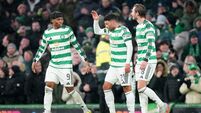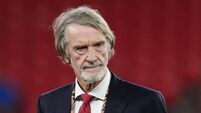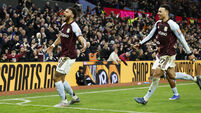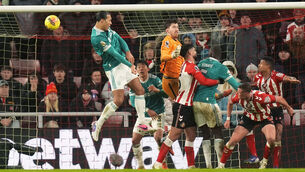End of what era, exactly?
And even the most scrupulously neutral would find it hard to disagree with this damning summation of the descent of Man United: "This United side may have been the most expensive, yet it was probably the least impressive side, the least in keeping with United's traditional class and style." And the depressing conclusion? "There can be no disguising the scale of the restoration job that lies ahead."
But before you start leafing back through this week's Benfica match reports to find out more don't. The quotes actually hail from June 1990, and are the gloomy thoughts of Michael Crick and David Smith, authors of a book entitled 'Manchester United The Betrayal Of A Legend," whose updated edition also promised "latest takeover developments."














